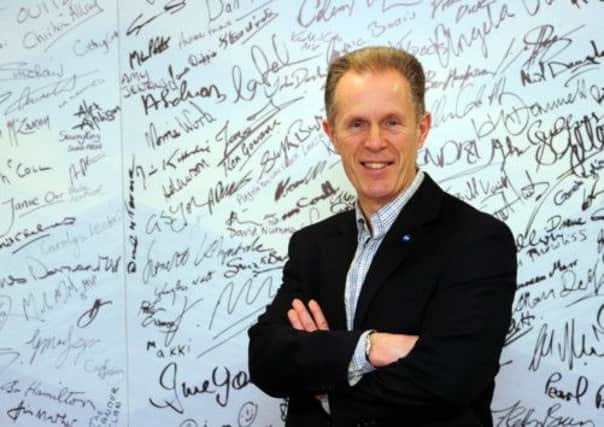Blair Jenkins: Scots prepared for independence


One part of the answer is that Yes Scotland knows from our research that people who regard themselves as well-informed about the independence debate are more likely to be voting Yes.
This direct correlation between feeling you have enough information and being more likely to vote for an independent Scotland will prove very important as we head into the final year of the campaign. We have enough time to have conversations in every part of the country, to present the full facts, to get the fictional roadblocks of the No campaign out of the way of the debate, and to explain that the people of Scotland are coming to a fork in the road where we have to choose one of two paths. There are two different futures on offer next year and voters in Scotland should examine both very closely.
Advertisement
Hide AdAdvertisement
Hide AdAs people move towards Yes, they begin to see themselves as part of something bigger – a Scotland-wide grassroots movement and community groundswell with a shared purpose, where individuals look typically not just to their own interests but also to what is right for the society of which they are a part.
When people (always in their own time) become more engaged with the debate, the two futures on offer will be compared side by side. Which will people prefer – a superficial “choice” between two UK parties in a 2015 General Election with little difference between them in terms of economic and social policy; or the wide-ranging debate with competing and compelling visions to be enjoyed and evaluated in the first elections to an independent Scottish parliament in 2016?
The first part of the campaign has been dominated by the mechanics of independence – how we get things set up after a Yes vote. In the weeks and months ahead we will see many new ideas about how an independent Scotland can build on its strong foundations and address its challenges, using our great economic strengths and tackling our legacy of social injustice and inequality. This fresh thinking will come not just from the political parties, but also from bodies like the Jimmy Reid Foundation with their emerging vision of Common Weal, from the imaginations of Scotland’s artistic and creative community, and from the many business figures who think the future looks brighter with independence. The Yes movement is much bigger and broader than the party political framework.
There is a consensus for economic and social development in Scotland that is markedly different from the divisive and socially unjust model that has dominated Westminster politics for more than 30 years. We need to move away from being a low-pay and high-anxiety economy, where people are disposable units of labour and the majority of Scots live with a constant sense of jeopardy and insecurity. We can do much better than this. We must do much better than this.
With independence we will enjoy the benefits of a written constitution with guaranteed rights, a commitment to the cradle-to-grave welfare state and much greater certainty on the continuation of high-quality public services. We can scrap Trident and the bedroom tax. For the first time in a long time, we can link housing supply to housing benefit and have a joined-up policy on decent homes for all our people. We can adjust business taxes and incentives to grow our existing industries and attract more inward investment.
Within the UK, voters in Scotland have very little influence on the choice of governments or policies. Our democracy will benefit from voters no longer feeling helpless and marginalised, from an end to the attacks on the living standards of working people and their families, and from a departure from the austerity agenda that stifles growth and destroys jobs. I have no doubt that any elected Scottish government in an independent parliament will have a stronger commitment to social justice than any UK government has had for several decades.
Westminster isn’t working. Going even further, it can also be argued that in some respects Westminster has for a generation been pursuing policies that are the antithesis of mainstream values, and are designed to serve the City of London at the expense of everybody else. These are policies which have seen inequality among working age adults increase faster in the UK than in any other developed country in the period since 1975.
A Yes vote is a rejection of Westminster politics and power and a preference for Scotland’s future being in Scotland’s hands. Scotland already has most of the structures in place for independent statehood. We are almost certainly better prepared for independence than any other European country pursuing self-determination in the last 100 years. We have the experience of devolution, great financial strengths and a clear transition process.
Advertisement
Hide AdAdvertisement
Hide AdWe have a great deal to gain from independence. And more and more people in Scotland are beginning to realise what we will lose if we don’t vote Yes next year. This is a once in a lifetime opportunity to create the kind of society that we would wish to have, an economy where there is enterprise and reward, but also a country where we support equality of opportunity. A No vote would lead to deep feelings of regret, the real sense of loss that follows a missed opportunity, and the painful awareness of the benefits and gains that we have squandered. I don’t believe Scotland will make that mistake.
• Blair Jenkins is chief executive of Yes Scotland